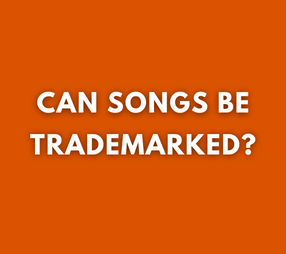INTRODUCTION:
A song’s copyright is handled under the Act and the Copyright Rules, 2013 (“Rules”). A song is made up of many different parts. When the lyricist creates the song first, it is complete as a whole. The composer of the song then adds music to the lyrics. the vocalist sang the song. This song might be played live or recorded in a studio by the performer. The song’s producer records it. A song is usually the result of the joint efforts of several individuals. However, if he creates the song, composes the music, and performs it, a song might be entirely owned by one individual.
You may trademark the name of a song as long as you utilize it to advertise your products and services. You may also register your band or music group’s name as a trademark to protect customers from being misled by competitors. If you want to register a trademark for a song or band name, you need to do a trademark search to ensure that the trademark is available. You won’t be able to claim your preferred name if another band has already registered a trademark for it.
In India, registering a trademark for a song title is unusual, however Sony Music Entertainment India Pvt. Ltd sought the registration of the title of its highly famous song Why This Kolaveri Di in 2011. To prevent others from using it, Sony plans to distribute branded CDs, cassette tapes, and SD cards, as well as film and non-film entertainment material and talent development programs.
Do Song Titles Fall Under The Copyright Law?
The purpose of copyright law is to safeguard creative expression in the form of an original work. To be protected by copyright, a work must have some creative expression beyond a notion, idea, concept, or statement. Names, phrases, titles, catchphrases, mottoes, and other similar items are not considered to have enough original value to warrant copyright protection.
To the degree that a song title may be protected by copyright, it is important to consider the complete work, including the title as well as the song lyrics, rather than just the title. Even if just a tiny piece of the original work is duplicated, the standard for copyright infringement may be met if a phrase is easily identifiable by a lay observer as a portion of the copyrighted work.
Can You Trademark The Title Of A Song?
Trademark law is primarily intended to protect the mark’s owner, but it also offers some protection to consumers. The use of a trademark can reassure a customer that goods or services are created by a certain person or firm, and prohibiting others from using a trademark can assist consumers to avoid being duped into purchasing things that are not made, sponsored, or approved by that person or company. Although some slogans, trade names, tag lines, and other similar brief expressions may be protected as trademarks or service marks, it is very unlikely that a song title will be one of them.
The United States Patent and Trademark Office (USPTO) will not register a trademark for a stand-alone work in terms of federal trademark protection. It will allow a trademark to be registered that is connected with a series of works, such as a book series. A song title could get some exclusivity or protection by including a trademark in the title.
Protecting your lyrics:
Song lyrics are significantly simpler to secure, as most songs have sufficient words and lyrical intricacy to warrant copyright protection. When lyrics are reduced to a fixed medium, such as writing them down, putting them into a computer file, or recording a song performance, copyright protection applies.
How to avoid trademark issues on your song?
The purpose of trademarks is to reduce customer misunderstanding and increase brand confidence. That is why a large corporation such as Disney would battle tooth and nail to prevent others from stealing its valuable trademarks. You might be in legal problems if you appear to be indicating that your music is officially sanctioned by or affiliated with another company. Even if you believe fair use rules apply, it’s preferable to avoid the risk of a trademark infringement case by being as unique as possible.
Terms of a Copyright song in India
The author’s copyright in literary and musical works will last for sixty years from the date of publication or for the author’s lifetime and sixty years after his death. As a result, the lyricist and composer of the song’s copyright are protected until their death plus sixty years. A sound recording’s copyright lasts for sixty years from the beginning of the calendar year after its release. As a result, beginning in the next year of publication, the producers’ copyright will be valid for sixty years. The performer’s or singer’s rights in a song will be valid for fifty years beginning with the year in which the performance is delivered.
Whether you’re a well-established musician or just starting, copyrighting your music is essential. Make the mistake of believing that just because you’ve recorded your music means you control the rights to it. For example, if you submit a track to a label in the hopes of being signed and it isn’t copyrighted, the label might take your music and utilize it for business purposes. You would have no legal remedy in such a situation.



No comment